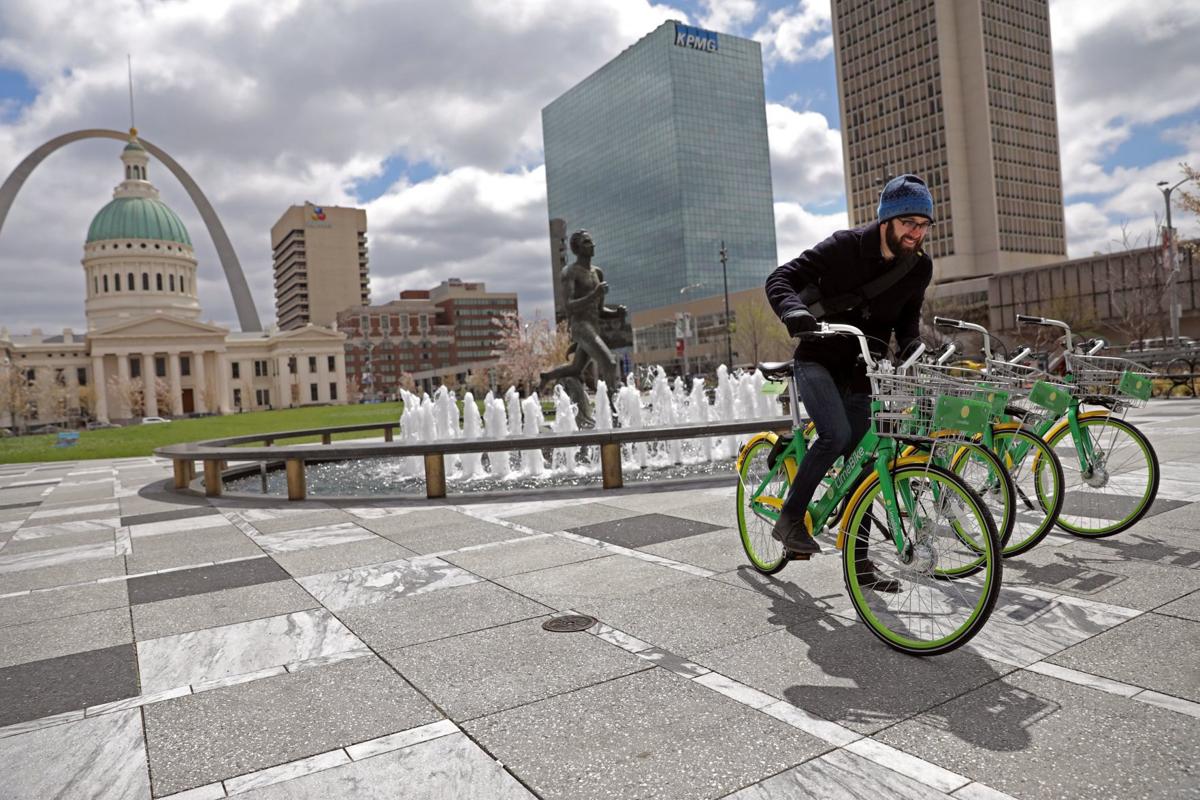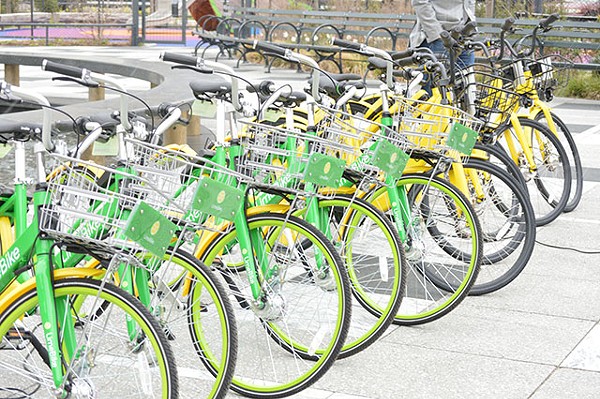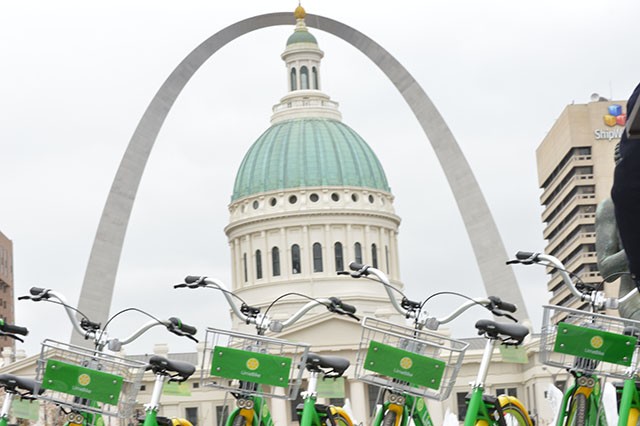St. Louis Dockless Bike Sharing Program – Making a Very Responsible Society
In addition, these regions are a 1 to 2 mile bike ride to MetroLink and the many amenities in the central corridor, jobs, and institutions, making dockless bike sharing a viable way to make basic needs more accessible. Trailnet, financed by the Great Rivers Greenway, is planning to allocate about eight thousand dollars in bike share education courses in these targeted areas to make sure that people who reside in the area know how to properly use the bikes and system.
The St. Louis Dockless Bike Sharing Program makes bike sharing relatively easy. The first step is to download the smartphone app for the bike share company you would like to use and create an account. The next step is to add funds to your account. To access the bike, you simply open the mobile app and scan the bike’s QR code. Once the bike is open, you can ride it to where you want to go and legally park it on a bike rack, or on the sidewalk strip between the street and the sidewalk, then lock it by pushing down the back wheel lock’s red tab. The introduction of the St. Louis Dockless Bike Sharing Program created a convenient way to make short trips to visit areas with congestion or limited parking space, to run errands, to work, or get to transit stations.
The most significant learning curve for bike sharing in each city with a bike share program has been parking, and the same applies to St. Louis. Before bike share users learn how to park properly, it is inevitable that some bikes will end up blocking doorways, driveways, and pedestrian traffic. In such cases, bikes often end up in funny places such as rivers or trees. However, as time passes and as users learn about proper parking, vandalism incidents reduce.
To be a good user of the St. Louis Dockless Bike Sharing Program, you should read the guides created by the bike sharing companies on how to park correctly. You should also pay attention to your bike sharing smartphone app since there are some areas that have parking restrictions.
The St. Louis Dockless Bike Sharing Program is designed to boost individuals’ access to experiences, friends, healthcare, school, and work, in a way that’s convenient, healthy, affordable, and complements the existing transit system. Since its establishment in 2018, The St. Louis Dockless Bike Share Program has been very instrumental in serving the transportation needs of the region’s residents. Although The St. Louis Dockless Bike Sharing Program will not solve all of the economic and quality of life problems of the region, or even the entire mobility problems, it is part of the puzzle that can act as a template for the use of private/public partnerships and to open up new technologies and ideas that can help the City of St. Louis achieve its highest potential.…


